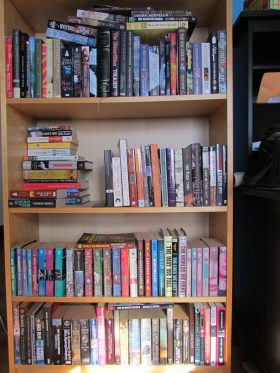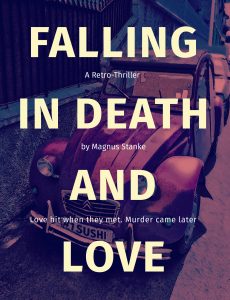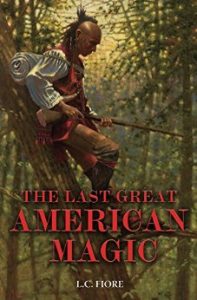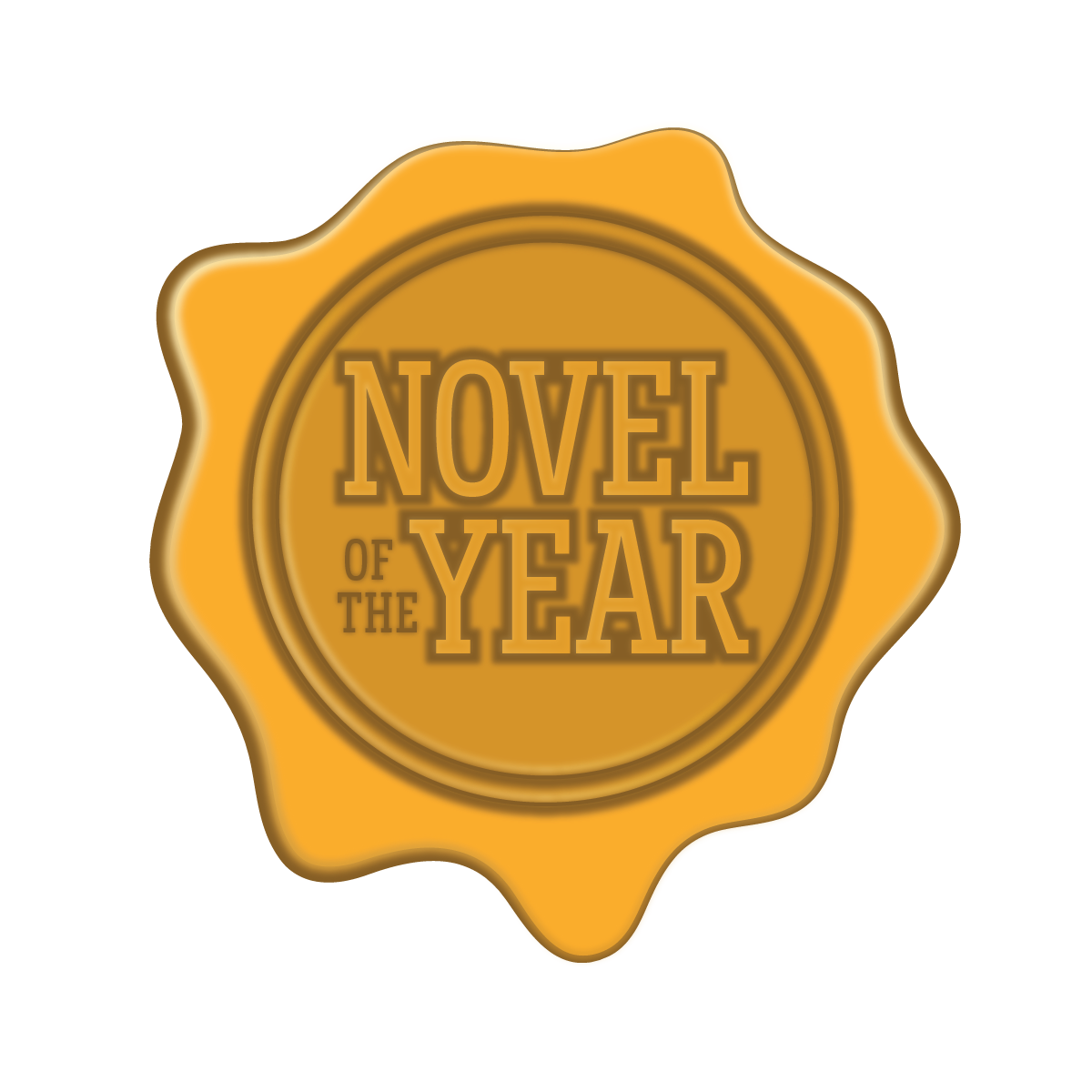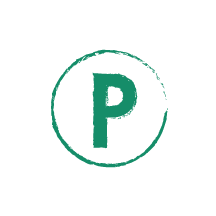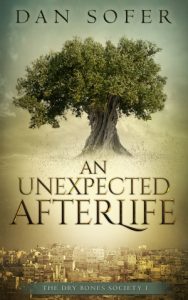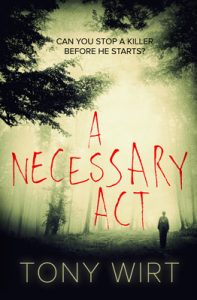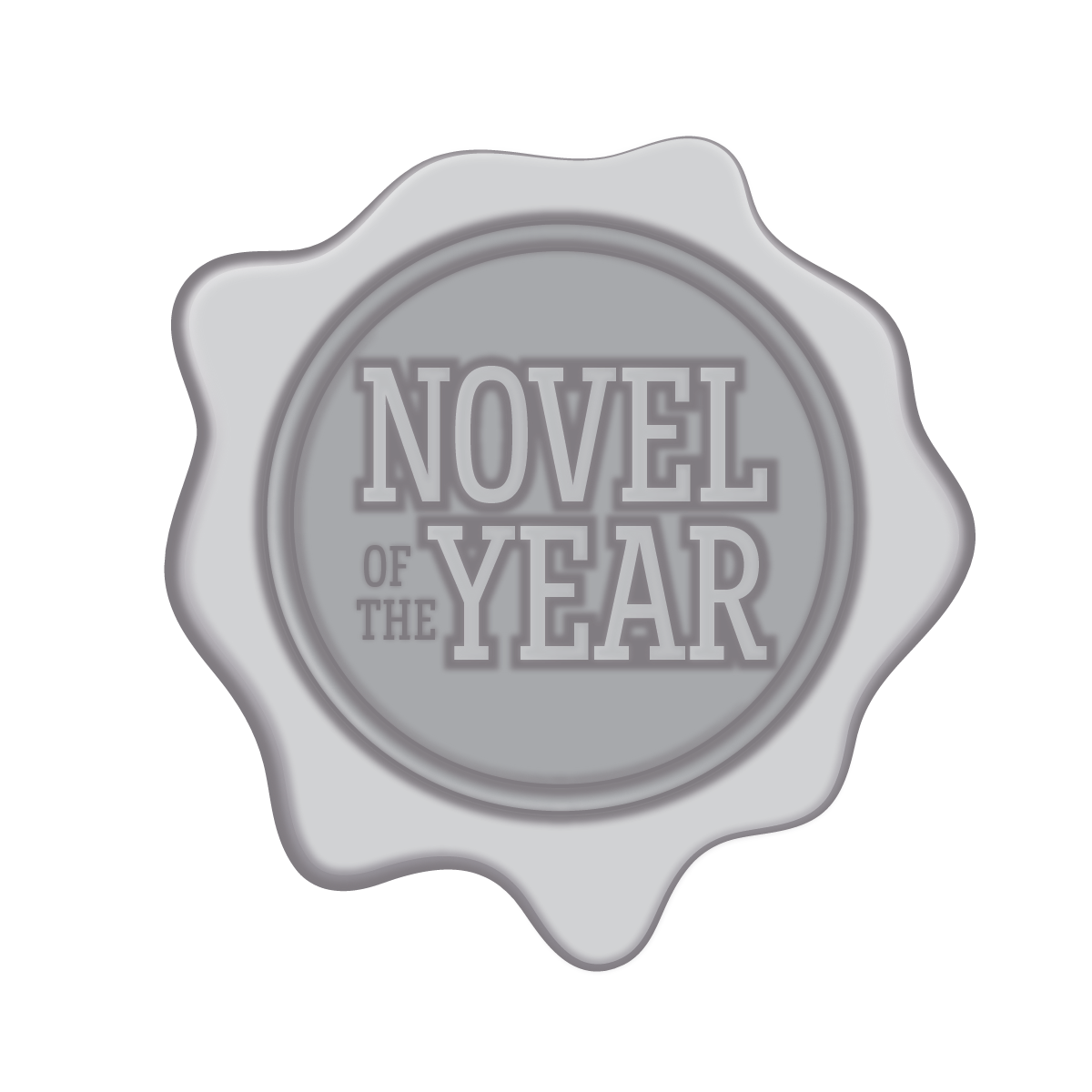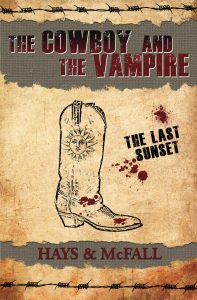The Rundown
The Recommendation
The Rating
The Links
The Reviewer
Bill Kieffer
Visit Bill Kieffer‘s website.I first heard of Siri Paulson and Turtleduck Press in the middle of 2016, when I was seeking a home for a short story I had written. The idea of a co-op press really appealed to me. Running away to join an artist co-operative on some farm in upstate New York was something that crossed my mind rebellious teen-age mind quite frequently. I grew up in the 70's, but I was always a bit too young to be a real hippy. Honestly, I was really never cool enough, either. Plus, I imagine my typing all night might have harshed more than one buzz.
Especially, since I don't really do poetry.
Still, I've kept the dream of running away to join an art collective as sort of open as a possible retirement plan.
Siri Paulson is a Canadian SF/F author who didn't wait for retirement to make the dream of writer's co-op happen. With the help of like minded friends across the Internet and North America, she's created a digital collective that allows day jobs and dream jobs to co-exist, if not overlap.
Siri Paulson on Her Book Shelf
This is the more actively used of my two bookcases. The top shelf is about half of my "unread" shelf – the other half being on my ereader! It's sorted chronologically by year of acquisition, with the oldest books on the left, newest on top. Underneath that, the horizontal books are ones I have read and am planning to pass on. The bottom three shelves are sorted by an arcane logic that makes sense only to me.
I'm lucky (?) enough to have a 45-minute commute on public transit in the mornings. It's broken up into stages and involves 10 or 15 minutes of walking, but I can usually read and walk at the same time. Naturally, that's not ideal reading conditions, so I get through about 25 books a year.
I crave variety in my reading, as you can see from my Goodreads. I read all over the science fiction and fantasy spectrum, mostly adult but also a few YA every year, and every year I also read a few books outside my genre, maybe a classic or some poetry. I like to think it keeps things fresh.
About Turtleduck
Please describe Turtleduck Press briefly and what genre(s) you serve.
Our tagline is "out-of-this-world romance". We publish mainly science fiction and fantasy novels and short stories with a heavy dose of romance, both straight and queer (MM and FF so far). Our focus is on out-of-the-box works that would be hard to place elsewhere.
How did you come to found Turtleduck Press? What titles and writers did you start with?
Turtleduck Press grew out of a small online writers' community. Several of us were ready to start publishing, wanted to go the indie route, and decided to band together to pool our skills, marketing power, and resources. Our mandate has always been out-of-the-box works. We started with a broader mix of genres – including poetry chapbooks and novellas – and later sharpened our focus to SF&F romance. We launched in November 2010 with three books: Knight Errant by KD Sarge (gay science fiction romance), Hidden Worlds by Kit Campbell (a short YA fantasy novel), and Life as a Moving Target by Erin Zarro (a poetry chapbook about living with chronic illness).
Do you have a staff? Can you introduce us?
There are four of us who take turns putting out books and short stories and also doing the various other tasks that need doing! Kit Campbell handles the business end and book formatting. KD Sarge takes care of the website and the cover art for our anthologies (we generally hire out covers for the novels). Erin Zarro does copy-editing and additional cover art. I handle the editing production schedule and other "chief editor" tasks. We all share marketing efforts, costs, editing tasks, and quality control issues.
I spent my formative years in the 70's, so I have a basic understanding of how a co-op works for apartments and farm markets. I even have a vague idea how that works for an art or crafts hall. My mind's a bit blown by the idea of a co-op publishing house. How did you come up with the idea? Where there any models that you were able to work from?
When I was in university in Alberta, Canada, I volunteered for a small press, The Books Collective. They had several different imprints for different genres, including science fiction/fantasy and magic realism/slipstream. They ran successfully for many years, including publishing the long-running anthology series Tesseracts (now published by EDGE Press). One thing that didn't work so well was that although it was meant to be a group effort, the sense of ownership devolved to just two people. We knew we didn't want that.
The other reason for the concept was, as I mentioned, to pool our efforts as indie authors. We all had different strengths and skills, so we felt that leaning on each other would help us fill in the gaps (and it has!).
I saw on your website that you publish both ebooks and printed books. But not all books have print versions. Tell me a little about what you’ll publish and how you come to a decision about what forms the book will be available in.
Generally, it's a matter of audience size and/or book length. We put out regular anthologies as samplers of our work (usually a short story from each of us and a teaser for the next novel release). But we don't necessarily expect a large audience for the anthologies, and some of them end up too short to make a decent-sized book, so some are released only as ebooks.
When you market your work; does the co-op nature of Turtleduck Press get played up or down? Have you experienced any extremely positive or negative responses or reactions to being a co-op?
Initially, we thought that being a co-op might be a selling point. Everything we publish has been vetted and/or edited by two of us besides the original author, meaning that we're putting our mutual seal of approval on it – effectively staking our reputations on its quality – whether it's a novel or just one of our free monthly short stories. But there wasn't much interest in that angle from audiences. So for the most part, we just quietly continue to put out books that are as high-quality as we can make them. I'm not sure how much being a co-op even registers with our readers.
How would you choose a new member for the co-op? What traits would you be looking for?
We could use someone who's enthusiastic about marketing! Beyond that, we'd be looking for someone whose writing is at a high level, who can meet deadlines and take editorial feedback, who is levelheaded but kind, and who is interested in meshing with a tight-knit group of creators to put out the best products we can in the genre we love.
To find such a person, we would first review their writing samples – the writing has to be there, above all else. We'd then make sure they knew something about our business model. We would discuss our expectations of output. (We generally put out one novel and one anthology a year, plus short stories or serial installments in every month that we don't have a major release. If we had an extra author, we'd probably increase to two novels and one anthology a year.) And we'd have a live meeting over text chat or Google Chat to make sure our personalities worked well together. If all of that worked out, we'd happily add them to the co-op!
Tales of Yourself

Tell us a bit about yourself before you put on your publisher hat. Where were you raised? How did you relate to others from your age group?
I grew up in Edmonton, Alberta, a medium-sized city on the Canadian prairies. I always either had my nose in a book, my pencil or pen on a page (before I learned how to type), or my head in the clouds "playing make-believe." Needless to say, I didn't always fit in well, but luckily, I was able to find a few like-minded friends who got me through the tough years of middle school.
Imagine that your ultimate destiny is a window-less, suspicious-looking van for a moment. Instead of “free candy,” what would be written on the side of it to lure you inside?
TARDIS full of books (and all the time in the world to read them, in between adventures through space and time).
What was the Young You like? Would Young You recognize Current You? What would you tell Young You?
Young Me was an idealistic, nature-loving, deeply emotional kid with a strong sense of justice and a chronic inability to make decisions. Current Me is a lot like that, only with depression, imposter syndrome, and less self-confidence despite evidence to the contrary. I would tell Young Me: It's okay to be deeply, truly, yourself. Your time will come.
What do your friends and family think of your publishing endeavors? Are they supportive? Have they tried to hold an intervention? Or do you find yourself reminding them of your true calling?
My friends and family have always been supportive. In fact, they were mystified when I tried to major in physics in university (that lasted one semester or so). Though it probably helps that I have a full-time day job as well... Last summer, I was thrilled to be able to hold two book launches for my first novel as an author – one in the city where I grew up, and the other in Toronto, the city I've called home for the past 12 years. Both launches were full of friends and family who were equally thrilled to be there for me.
Community Interaction: Readers/Fans
How do you find your readers? Or do readers tend to find you?
Mostly the latter, because we aim for some pretty specific niches: m/m or f/f romance, say, or paranormal romance featuring Christian mythology. Our bestselling books are m/m science fiction romance, which tells you something.
How do you interact with your readership? Do you have a forum? A newsletter? Pen-pals?
We have a blog, which rotates between the four of us, and a Facebook page where we share all sorts of news of interest, from women in STEM to science-y tidbits to upcoming female-led movies. For City of Hope and Ruin, co-authored by Kit Campbell and me, we even did a book launch on Facebook, which was a lot of fun because Kit and I live 1500 miles from each other and have never met.
What is the typical fan of Turtleduck like? Do you even have a typical fan? Are your readers attracted to different authors (or imprints) differently? Or do your readers tend to be attracted to the whole she-bang?
We target female science fiction and fantasy fans who like romance in their stories, but there's a very wide range within that. Some of our offerings lean toward the paranormal (Kit Campbell's Shards, Erin Zarro's Fey Touched series), while others are space opera-adventure with m/m romance (KD Sarge's Dream 'verse series). City of Hope and Ruin is an unholy genre mashup of post-apocalyptic fantasy and f/f romance. We also have m/m fantasy romance (KD Sarge's Burning Bright). And of course our anthologies are a sampler of everything.
Fill in the blank: Readers who like _________ are going to read your books?
Doctor Who! Lots of banter and adventure, and not terribly concerned with scientific principles except for the storytelling and character-torture possibilities.
What sensations or experiences do you hope to evoke in your readers? What’s your favorite feedback so far from one of your customers?
I had not one but two people tell me that they missed their subway stop reading City of Hope and Ruin! While it's gratifying to know that we're successfully providing escapism, we also want readers to walk away with a sense of strength: that they can struggle against difficult backgrounds and insurmountable odds and still find their way "home".
What conventions or conferences do you attend where you meet fans? Do you tend to appear on panels, or do you prefer to revert to a fan yourself?
Kit Campbell has done an author/bookseller table at MileHiCon in Denver a couple of times, but other than that, we tend to go to conventions as fans ourselves. KD Sarge goes to YaoiCon in San Francisco. On the Canadian side of the border (that would be me), I've been to Ad Astra and SFContario (both in Toronto), several cons in Alberta that I don't believe exist anymore, and one lucky year, World Fantasy Con when it was in Toronto.
Community Interaction: Writers
Without naming names, tell me what your worst author interaction was. Was bail money involved?
With my chief editor hat on, I've twice had to go back to authors I count as friends and tell them that the work they had submitted didn't meet our needs. In one case, they did a revise-and-resubmit, which was then accepted. In the other case, they had to write a completely different short story under a tight deadline. Those were painful for me, and worse for them, I'm sure.
What are the demographics of your writers? How diverse are they, and is that diversity reflected in your books?
Between us, we have lived experiences with depression, physical disability, poverty, differing family structures, and more positive diverse experiences like intercultural relationships and widely varying parts of the continent (we live in three different states and one Canadian province, double that if you count the places we've lived in the past). We're all pretty homogeneous in gender, racial background, and sexual orientation. But we're passionate about writing diversity of all types, with sensitivity and humility, to the best of our abilities.
In addition to being a publisher, do you offer any literary services for creators outside of your publishing company?
Independent of our publishing company, Kit offers freelance editing, book formatting, and coaching services at Kit the Editor, and Erin offers freelance editing services at Erin Zarro Editing. Turtleduck Press does not take a cut of these services and will never suggest them to prospective members as a way to increase their chances of being accepted for membership.
Even ebooks have to have covers. How much say do your creators have in selecting a cover artist? How much say in the layout and design?
Our creators are responsible for their own covers, subject to approval by the other members. Some of our covers have been commissions, while others have been designed by the authors with feedback and support from the rest of us. It's important to us to create books that look, feel, and read like professionally produced books in their sub-genre, and, of course, the cover is a reader's first impression.
On Marketing
Most indie authors understand that they must do some marketing of their book, once it’s published. If publishing was a pool and marketing was swimming, are you the doting parent that shows them a video, buys them water-wings, and eases them in? Or are you more the uncle that throws them into the deep end with a slap on the ass and a hearty “Sink or Swim!” shout?
The latter! We're all just flailing around in the water, holding onto each other, hoping to get bites while not getting eaten by sharks ourselves (cue the Jaws theme...).
People who might want to know more about diverse science fiction and fantasy romance should visit what websites or forums?
For a database of queer romance books, including tons of great search functions to help you find exactly the tropes, sub-genres, or pairings you want, check out QueeRomance Ink (new but growing!).
For a website dedicated to geeking out about science fiction and fantasy, with an emphasis on diversity of all kinds, check out Tor.com.
There are tons of great bloggers, too. Some of my favourites are Cheryl Morgan for queer and trans SF&F reviews, John Scalzi's Big Idea feature showcasing SF&F books, and Jennifer Crusie for some fascinating peeks into the mind of a romance author (she started out writing mainstream romance but her last few books have leaned paranormal).
Community Interaction: Local Real World Stuff
Do you, as a publisher, reach out to locals through bookstores, craft fairs, or the local chamber of commerce? Do you maybe sell your books at farm markets and the like?
We don't have a single "home base", which is both good and bad. The four of us live in completely different cities, so we've been able to quadruple our community connections by each reaching out to our local communities. Kit, as I mentioned, has done tables at her local convention, while I've placed my own book at two independent bookstores that are local to me, and we've got books in several far-flung libraries as well.
What is your area like? What attracted you to it? Do you find it inspiring in any way?
I live in Toronto, which is one of the most multicultural cities in the world – half of Torontonians were born outside of Canada, with over 230 nationalities represented – and I love that. The city is broken up into a multiplicity of neighborhoods dominated by different ethnicities. My own neighborhood is Portuguese and Italian, with a healthy mix of Brazilian and other South and Central American nationalities as well. It goes crazy when the big soccer (football) tournaments are happening. Besides that, I love the old brick architecture and big trees found throughout the city. I have, in fact, written a contemporary fantasy novel set in Toronto, but unfortunately it's a "trunk novel" that will never see the light of day.
Do you work with any local writers or know any? Does the area find its way into their work?
I know a ton of local writers from various groups and networking opportunities. Here in Toronto, we're sometimes discouraged from being "too Canadian", especially as genre writers – one YA author I know usually sets her books in the States for that reason, and she's certainly not alone. For that reason, it's always exciting to see Toronto and other Canadian settings appear in genre stories. A few SF&F novels that do feature Toronto: Brown Girl in the Ring by Nalo Hopkinson, Above (YA) by Leah Bobet, the Fallen World trilogy (YA) by Megan Crewe, and the Jenny Casey trilogy by Elizabeth Bear.
Business vs Passion, Publisher vs Creator
Do you publish your own work? If so, do you handle the work differently from idea to distribution?
I do publish my own work – I've had stories in all the anthologies we put out, and last year we published City of Hope and Ruin, my debut novel. When I publish my own work, I do my best to approach it with the same business-mindedness as I apply to the others – there are deadlines even if my creative self is gibbering in the corner, and it goes through the same editing and other quality control processes. It was the first time I'd done a big marketing push on one of my own books, which was educational and a huge effort and also sometimes a lot of fun.
What business choices have you had to make that really annoyed your creative self? How often do the artist and the publisher within you butt heads? Which side wins the most often? What was your last bad business but good art decision?
Aside from the double-edged sword of marketing that I mentioned above, Turtleduck Press has actually been very good for my creative self. It's forced me to keep up a certain writing output, to write to an external schedule (okay, I wrote the schedule myself with my editor hat on, but shhh), to think like a professional in my field, and to be beholden to other writers in a very concrete way.
How often do you get the chance to write for other markets? Do you do so grudgingly, or do you prefer the change of pace?
Turtleduck Press now focuses on romance within SF&F. Everything I write is SF or fantasy, but it's not always romance. That means not everything I write is going to fit, which is just fine. I once accidentally wrote a literary story that I thought was going to be a ghost story, but it didn't turn out to have any genre component in it at all! I also enjoy blogging regularly, both at Turtleduck Press and at my own blog – I've covered all sorts of blog subjects, including travel blogging and movie reviews, just for variety and practice.
If you feel your connection to or appreciation for science fiction and fantasy romance waning, how do you reconnect or revitalize that loving feeling?
Reading! I have an endless to-read list. It's never as much as I would like, but reading a good book is always, always revitalizing.
Current and Future Plans
What was 2016 like for you and Turtleduck Press?
As I mentioned above, I released my debut novel, City of Hope and Ruin, with my illustrious coauthor Kit Campbell. That consumed a huge chunk of the year, but it's obviously the highlight of my career so far! We also released To Rule the Stars: A Space Princess Anthology, which was a lot of fun to put together.
What are the plans for the immediate future? What books will be rolling off the presses shortly?
Our next release is Ever Touched, the third book in the Fey Touched series of "urban SF romance" novels by Erin Zarro.
Do you have any long range plans in the works?
We're planning to return to the Fractured World universe introduced in City of Hope and Ruin, although the specifics aren't sorted yet. KD Sarge's m/m fantasy Burning Bright is book 1 of a planned trilogy. And one of these years I might even put out a solo novel...
Turtleduck Press - Blog and Offerings

